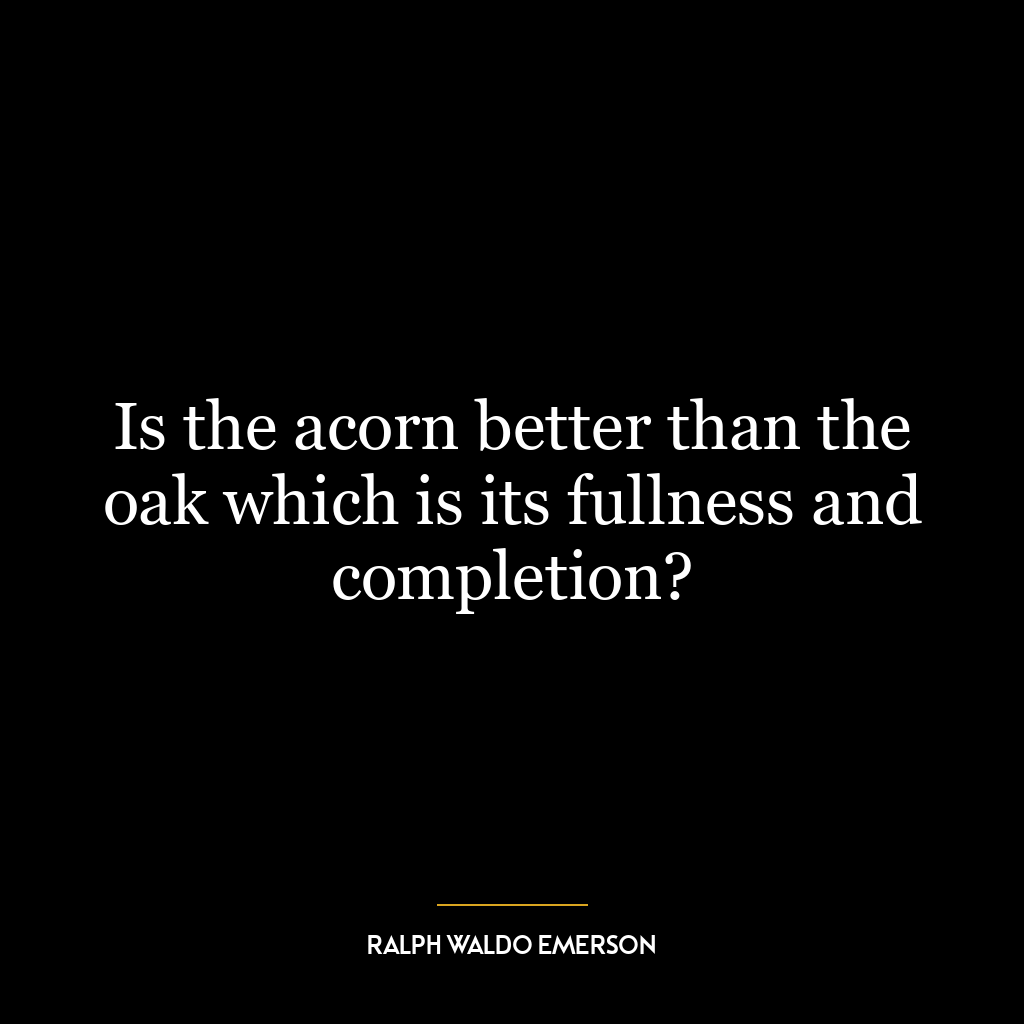This quote is a philosophical contemplation on the nature of growth, potential, and fulfillment.The acorn represents potential, in its rawest form; it’s small but it contains the blueprint for a mighty oak tree. The oak represents realization of that potential – it’s the fullness and completion of what was inherent in the acorn.
The question posed here forces us to ponder on which state is superior: Is it better to be an acorn with all its unfulfilled potential or an oak tree that has realized its fullness? It raises questions about value – do we value something for what it could become (potential) or what it is indeed now (actualization)?
In terms of personal growth, this concept can be applied as follows:
As humans, we start out like acorns with limitless potential. We have dreams and aspirations about who we wont to become – prosperous professionals, accomplished artists, etc. This phase of life is exciting because everything seems possible.
As we grow older and mature like the oak tree, our potentials get actualized into realities. Some dreams are realized while others are not; some paths taken while others abandoned. This stage also brings satisfaction as there’s a sense of achievement from realizing our potentials.
But just like Emerson’s quote questions whether an acorn is better than an oak tree or vice versa; we too might question whether unrealized dreams (acorns) are more valuable than achieved goals (oak trees). Are our lives richer when they’re filled with possibilities or when those possibilities have been turned into realities?
In today’s fast-paced world where success often equates to achieving set goals – becoming the ‘oak tree’, this quote invites us to pause and appreciate the beauty in being an ‘acorn’- cherishing our raw potentials even if they haven’t fully materialized yet.
It reminds us that life isn’t just about reaching destinations but also appreciating journeys; not just about becoming but also being.














